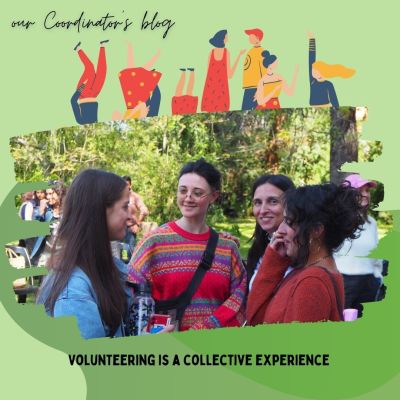The purpose of this interview was to get an idea of how racism is perceived in Argentina from an insider's account, as opposed to the historical and technical contexts in previous weeks.
By Andrew Kahan The following is an interview conducted with a middle-aged, well-educated, professional Argentinean woman about her perception of racism in Argentina. The purpose of this interview was to get an idea of how racism is perceived in Argentina from an insider's account, as opposed to the historical and technical contexts in previous weeks.
How would you define yourself if someone asked you "what you were"?
I am an individual, I am a woman.
How would you classify racism in Argentina?
Racism in Argentina is different from, for example, the States. In Argentina people who discriminate against others do it against individuals who have darker skin (though not black in the sense of African American black), because they come from indigenous ancestry, either from the provinces of Argentina or from countries which are close, like Paraguay, Bolivia, Perú. They use the word “negro” in this context. Usually these individuals have a less privileged situation and are less well off (you can compare people who live in the northern suburbs of the Capital and people who live to the West or the South of the city and this will give you a fairly good idea). These people started coming into the city around the 1940s, and a great majority settled in the "villas miseria" or shantytowns for lack of resources or of a job.
Do you see racism in national & public policies?
Not now, though if you study the history of Argentina you have many examples of this in the late nineteenth or early twentieth centuries. I only see corruption, which is democratic, since its effects are pernicious for everybody regardless of race or religion.
Do you find racism in Argentina to be ethnically or socially founded?
Both, but both are closely related. Do you find racism to be a generational issue?
I don´t know. I think it has been going on since before our country became Argentina, since the time of the Viceroyalty or even earlier. I think that strong prejudice will always exist and that it is utopic to think it can be eradicated from any part of the world.
Can you describe a significant encounter you have had with racism in your life?
As I was telling my students the other day in class, this happened to me a few years ago and it shocked me because the episode reflected how people who are discriminated against perceive themselves through the lens of other people´s prejudice. I was walking down Viamonte Street one afternoon, coming back from the office, and I do not remember why but I was well dressed for some reason, a meeting, probably. There is a building there which belongs to the public administration, and there were two men, two workers, talking in front of the building. They were probably taking a break from work. From a distance (add that I am shortsighted) one of them seemed to have a cigarette in his hand, which was dangerously extended away from his body, and I thought I ran the risk of getting my clothes burned and ruined. So I kept walking but when I was approaching the two men I moved a little away from them. Then I realized that what I had taken for a cigarette was actually a bunch of keys. And one of them then said something about my being afraid of getting too close to them because they were not like me (in a racial way, it was implied), or something of the sort. This made me feel terrible, since the simple truth was I was too shortsighted to see what he had in his hand and was afraid of ruining my clothes. This self perception of people who are marginalized by others scared me and made me rethink this whole racism issue in a new light.




